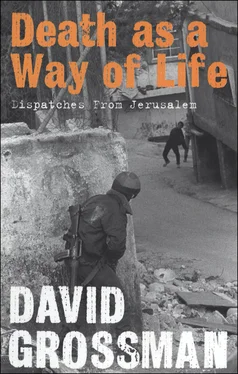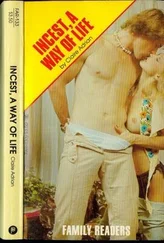David Grossman - Death as a Way of Life
Здесь есть возможность читать онлайн «David Grossman - Death as a Way of Life» весь текст электронной книги совершенно бесплатно (целиком полную версию без сокращений). В некоторых случаях можно слушать аудио, скачать через торрент в формате fb2 и присутствует краткое содержание. Год выпуска: 2013, Издательство: Bloomsbury Publishing, Жанр: Прочая документальная литература, на английском языке. Описание произведения, (предисловие) а так же отзывы посетителей доступны на портале библиотеки ЛибКат.
- Название:Death as a Way of Life
- Автор:
- Издательство:Bloomsbury Publishing
- Жанр:
- Год:2013
- ISBN:нет данных
- Рейтинг книги:5 / 5. Голосов: 1
-
Избранное:Добавить в избранное
- Отзывы:
-
Ваша оценка:
- 100
- 1
- 2
- 3
- 4
- 5
Death as a Way of Life: краткое содержание, описание и аннотация
Предлагаем к чтению аннотацию, описание, краткое содержание или предисловие (зависит от того, что написал сам автор книги «Death as a Way of Life»). Если вы не нашли необходимую информацию о книге — напишите в комментариях, мы постараемся отыскать её.
Death as a Way of Life — читать онлайн бесплатно полную книгу (весь текст) целиком
Ниже представлен текст книги, разбитый по страницам. Система сохранения места последней прочитанной страницы, позволяет с удобством читать онлайн бесплатно книгу «Death as a Way of Life», без необходимости каждый раз заново искать на чём Вы остановились. Поставьте закладку, и сможете в любой момент перейти на страницу, на которой закончили чтение.
Интервал:
Закладка:
Get out. We began this war defeated, and if Barak gets us out now, it will be his first great victory as prime minister. But to achieve that, he will have to recognize that we’ve lost this war. We are defeated. We can say it out loud — and not die of it.
Of that you don’t die.
On May 22, 2002, Israel withdrew its forces back to the international border with Lebanon in a quick forty-eight hour operation — two months before the original deadline set for withdrawal by Barak.
The Pope’s Visit to Israel
March 2000
Pope John Paul II made a historic official visit to the State of Israel on March 20, 2000, as part of a wider, millennium-commemorating visit to the holy Christian sites of the region. He was accompanied by tens of thousands of pilgrims. During his weeklong stay, the Pope visited the Christian holy sites both in Israel and in the Palestinian Authority territories, as well as sacred Muslim and Jewish sites and “secular” sites like Tad Vashem and a Palestinian refugee camp. The visit elicited much attention and interest around the Christian world and among Israelis and Arabs.
Day One: The Pope Arrives
An Israeli sits in front of his television set in his home in Jerusalem and watches the Pope arrive in his country.
This person is not religious. Religious ceremonies are foreign to him, and religious institutions in particular are foreign to him. He is very Jewish, and he respects those whose religious fervor burns in their hearts, but he himself has not performed what Kierkegaard called “the leap of faith.”
For a few days he’s been telling himself that this visit, historic as it is, will certainly neither move nor impress him. He’s been explaining to himself that the Pope’s visit is of no relevance to him, to his day-to-day routine, to the immediate problems of his private life, or to the political and moral dilemmas that his country has been agonizing over for decades. But when the airplane lands in Israel and the Pope emerges atop the stairway leading down to the tarmac, something suddenly happens.
The Israeli looks at the Pope, an old man, bent and burdened with years, weighted down with experience and the vicissitudes of life. Real sorrow, personal and very human, is also evident in his everyman’s face. He gazes at the Pope and suddenly sees, as if by an epiphany, what the Pope himself sees, perhaps: the state of Israel. The reality, both symbolic and concrete, of a country born after two thousand years of exile, religious persecutions, inquisitions, blood libels, pogroms, and the Holocaust.
The man in the armchair isn’t in any way resentful about this. He does not in any way see Israel as reprisal for what the Gentiles have done to the Jews, under the leadership and inspiration of most of this current Pope’s predecessors.
The opposite is true. In the meditative, profound gaze of the Pope he sees the marvel and the opportunity of the Jewish state. He sees the Jewish people’s life force for revival and renewal, which in these difficult times is the source of the great hope that Israel can save itself from the curse of war and attain peace.
The Israeli sitting and watching television fidgets uncomfortably in his chair. He really had had no intention of being carried away by such “historic” sentiments. Nor has he had any intention of reopening old accounts with either the Christian world or the Christian religion. Keeping such score would not, in any case, repair anything, and who today has the strength to peer again into the darkness in which Jewish-Christian relations have been conducted over the last two thousand years?
But then the Pope passes before the honor guard of Israeli soldiers. Bent over, leaning on his cane, deep in his own thoughts, he moves past the strapping armed men, who embody an ironic reversal of ancient stereotypes. The man in the armchair, who is no great fan of armies of any kind, reflects to himself that had any Jews of the last forty generations seen this Jewish military honor guard — even his own father, who fled Europe only seventy years earlier — they would not have believed their eyes. Then the Israeli suddenly comprehends, more than he had allowed himself to do up to this moment, that the restrained, well-planned ceremony is a thin veneer of formality, behind which seethes an entire history. It is a cruel, primal, deep open wound, but maybe now, finally, there is a new opportunity, the first of its type, to heal it.
Then the Israeli national anthem is played. There’s no way of knowing whether its words have been translated for John Paul II. Perhaps they ought to be explained here. They speak of hope — the Jews’ two-thousand-year hope to establish a free nation in their own land, the land of Zion and Jerusalem.
Then the Pope speaks. He conveys fine and moving thoughts. This brave man, who had the courage to change the Church’s position toward Israel and Judaism. He speaks of his spiritual journey here, and a thought about what this great journey can become steals into the Israeli’s heart: a journey of elucidation and study, of identification and remorse, a religious and physical journey traversing all the terrible stations we have passed, Jews and Christians, human beings, men, women, and children; a journey to the beginning, from which will, perhaps, begin a new future, a life that is more possible and more human. This will certainly not happen in one short week. But it can begin here.
Day Two: Visit to a Refugee Camp
The Israeli and Palestinian officials were worried and tense as they sat and measured each word of the Pope’s speech. Would he depart from the text that had been prepared and agreed to by all the parties? Would he refer to the status of Jerusalem? Would he mention the Palestinian demand for a return to the 1967 borders? In the struggle between the two peoples, each gain by one side is still perceived as a defeat for the other. But beyond the words that were said, something deeper was becoming evident. The Israelis and the Palestinians look now like two inimical brothers, modern incarnations of Jacob and Esau, waiting for the blessing of their father. Each brother eyes what the other receives, and has faith in the magical power of the blessing.
I wonder whether the Pope — in his talks with this and that side — was able to comprehend the extent to which their long struggle has made them eerily similar to each other. Both have the same, almost hysterical sensitivity to what other people say and think about them. There’s the same manic-depressive excitability, the same need for any former enemy to love them, really love them. They share a potent self-destructive instinct, a compulsion to trip oneself up, and a bitter gravity that is nearly devoid of faith in any promise or hope.
Precisely because the Pope took care not to enter the political minefield, he was able to pronounce some important truths that have almost been forgotten after years of conflict. He spoke of the simple human suffering of millions of refugees, of the pointlessness and inexplicability of this ongoing misery. He reminded those people that their plight does not make them less deserving. With a few simple words he restored to them the honor that the “situation” has stolen from them.
And, in passing, he also spoke of the responsibility that all the leaders in the Middle East have for this suffering. I believe that this wholesale indictment was intentional. It’s not just Israel’s leaders who bear responsibility for the refugees’ misery. The leaders of the Arab world do as well. The wealthy Arab countries could long ago have alleviated the refugees’ day-to-day distress to some extent, but they preferred to preserve their misery and to cement their suffering in the ugly setting of the refugee camps.
Читать дальшеИнтервал:
Закладка:
Похожие книги на «Death as a Way of Life»
Представляем Вашему вниманию похожие книги на «Death as a Way of Life» списком для выбора. Мы отобрали схожую по названию и смыслу литературу в надежде предоставить читателям больше вариантов отыскать новые, интересные, ещё непрочитанные произведения.
Обсуждение, отзывы о книге «Death as a Way of Life» и просто собственные мнения читателей. Оставьте ваши комментарии, напишите, что Вы думаете о произведении, его смысле или главных героях. Укажите что конкретно понравилось, а что нет, и почему Вы так считаете.












